Special Steels for High Pressure Die Casting
Daniel Kipp
High pressure die casting is one of the most cost-effective manufacturing processes used in the foundry industry and is renowned for its high dimensional accuracy and homogeneity during series production.
This method entails injecting molten metal into a die cavity at a very high speed. The pressure applied to transport the molten foundry metal stream into even the narrowest of cross-section is imperative for precise shape reproduction, which is one of the special benefits of high pressure die casting.
Pressure die cast parts are predominantly designed to be as thin-walled as possible in order to allow shorter cycle times and to reduce casting material. Nevertheless, the molds are exposed to considerable mechanical and thermal loads during die casting, which is why the durability of a die is of particular importance.
Die casting for numerous application areas
By far the most important application area is the automotive industry, wherein the parts are used in cars, trucks or two-wheelers. The changing powertrain technology will significantly influence the market, while also offering new opportunities in the area of electric vehicles.
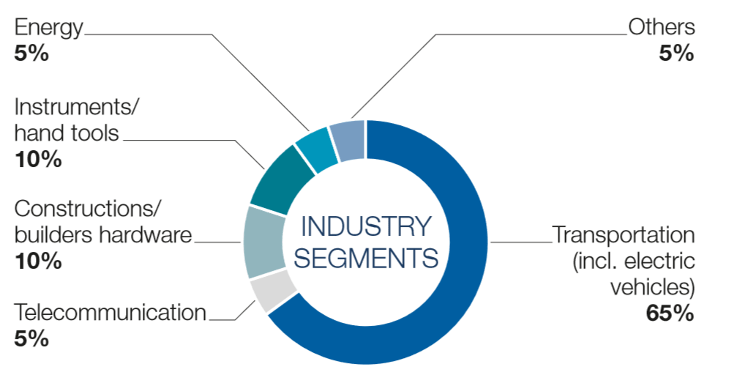
Figure 1: Die casting parts are used in numerous application areas
New and challenging trends are recognizable that lead to new limitations but also new possibilities:
- Higher efficiency
- Increase of the number of shots (standardization/platform strategy)
- Big diversity of casting alloys (aluminium, magnesium, zinc, etc.)
- Weight reduction of the produced parts to achieve less CO2 emissions
- Higher complexity of the produced parts
- Additively manufactured 3D-printed tools
- Dies with bigger dimensions for structural parts
- Coating of the surface to avoid abrasion and to achieve better sliding and ejecting properties
Failure causes in die casting applications
In the die casting industry the demand for higher lifetime expectancy is unbroken. Beside of the die material there are various aspects influencing the lifetime.
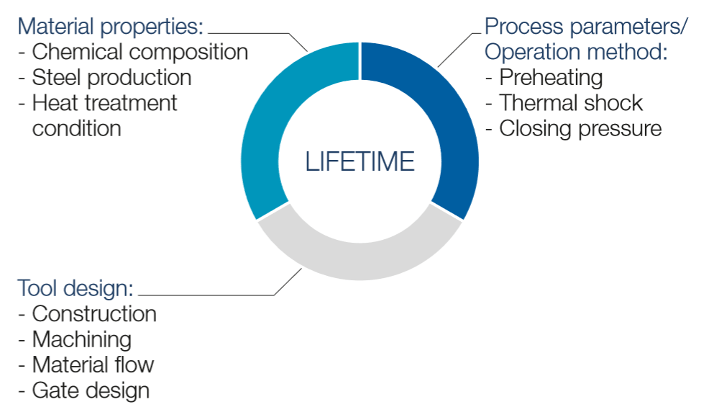
Figure 2: Influences of the die lifetime
For that reason, DEW is focused on the major defect types of die casting dies to identify space for improvement. As roughly 80% of all failures were caused by heat checking, the improvement of the resistance against this defect type is the biggest challenge.
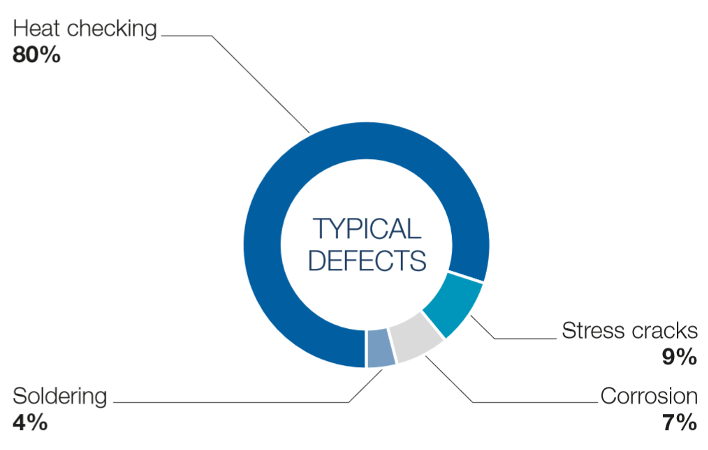
A matter of lifetime
The die‘s service life depends largely on the quality of the hot work tool steel as well as its means of production and heat treatment. The effects that choosing suitable steels and the purposeful adjustment of individual alloys can have on the die’s quality, reliability, and service life, should therefore not be underestimated. During the die casting process, temperatures fluctuate immensely and the fluctuation intervals are extremely short and vary from metal to metal. This makes the thermal shock resistance of the hot work tool steel a top priority for the die caster.
The steel should offer the following properties:
- Excellent thermal shock resistance
- Great high-temperature strength
- Outstanding toughness at elevated temperatures
- High thermal conductivity
- Excellent wear resistance at elevated temperatures
- High compression strength
- Good weldability
The right steel for your application
For the increasing demands in the high pressure die casting industry we as Deutsche Edelstahlwerke recommend using our high-performance hot work tool steels from our Thermodur® Superclean range for more durable, reliable and cost-effective dies. These Electro Slag Remelted (ESR) grades offer the required property profile with the highest toughness values combined with a homogeneous microstructure and the finest grain size. Additionally, we also offer the standard materials in our special condition with Extra Fine Structure (EFS) as Thermodur® 2343 EFS, Thermodur® 2344 EFS and Thermodur® 2367 EFS in non-ESR condition. All our die casting steel grades fulfil the criteria according to NADCA #207-2018.
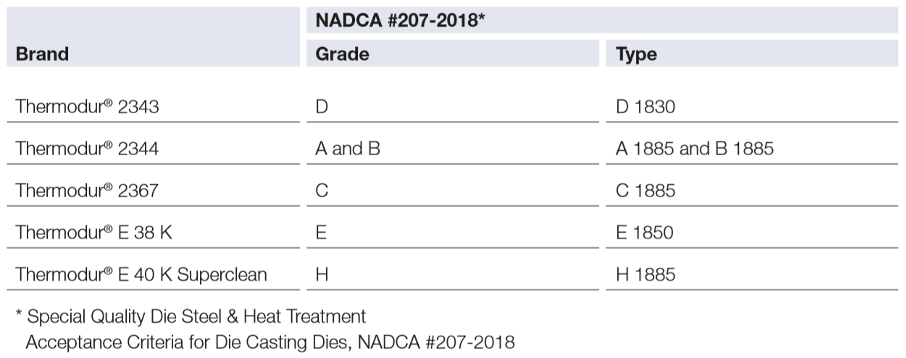
Depending on the application, shape, casting alloy, dimension of the tool and further factors the steel choice should be done by consideration of the entire property profile the specific steel grades offer. We subdivide our hot work tool steels into standard material in conventional condition, prime quality in ESR condition and high-performance materials which are specially developed to reach outstanding results even in highly stressed HPDC tools. Find your steel on Matmatch today.
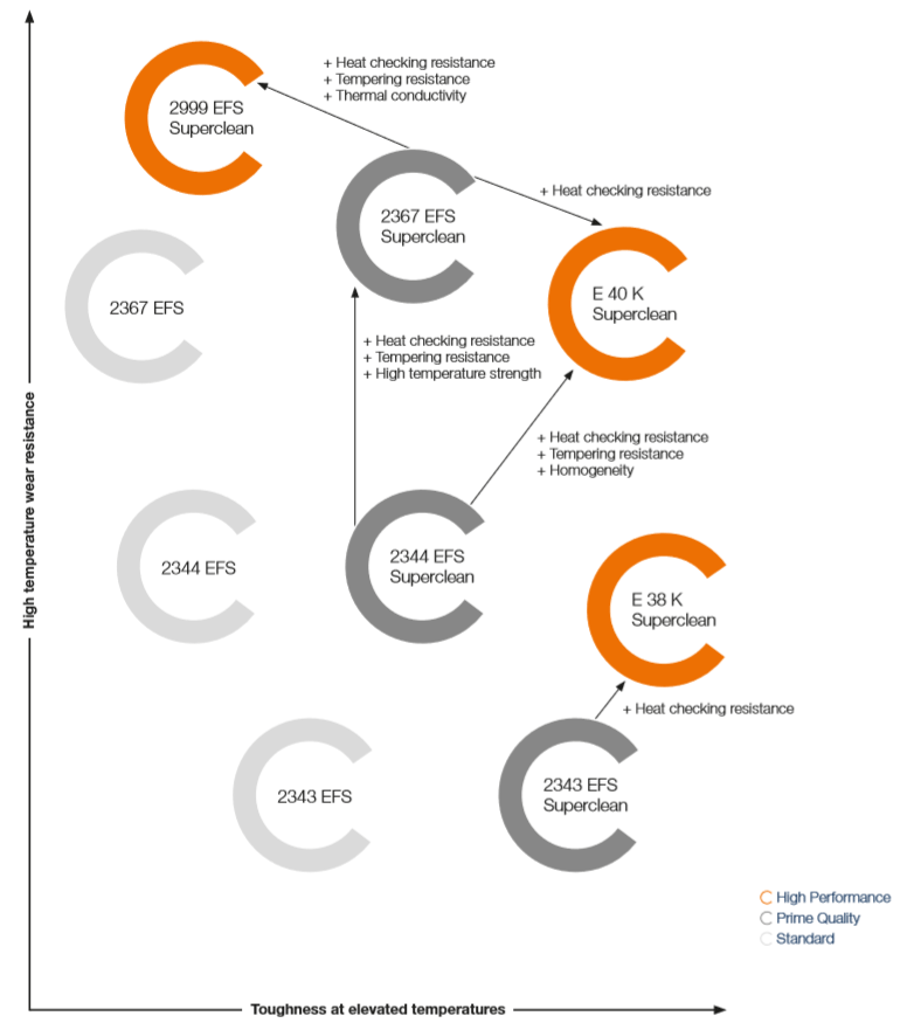
Artikel von <a href=/suppliers/dest-deutsche-edelstahlwerke-dew-> Deutsche Edelstahlwerke (DEW) </a>Deutsche Edelstahlwerke (DEW)
Deutsche Edelstahlwerke (DEW) is one of the world’s leading producers and processors of special steel long products and belongs to the Swiss Steel Group. In the three materials groups – engineering steel, tool steel and stainless, acid and heat resistant steel – Deutsche Edelstahlwerke offers international customers a uniquely wide range of product dimensions, from drawn wire with a diameter of 4.5 mm to open-die forgings with a diameter of 1,100 mm. As a partner with technical competence in steel, Deutsche Edelstahlwerke develops innovative, individual special steel solutions for complex high-tech applications and offers services ranging from steelmaking to extensive steel processing and steel finishing.
Four of the best
Deutsche Edelstahlwerke is the leading producer of long high-grade steel products. The products range from drawn wire with a diameter of 5.0 mm all the way to forged products with a diameter of 1100 mm.
This wide product range makes our offering unique in the world and gives our customers a decisive advantage: with us, they can get everything from a single source.
Tool steels
As one of the world's largest producers of tool steel, we supply exactly the steels that our customers need for their individual products, with properties accurately tailored to the respective application.

Stainless, acid and heat-resistant steels
Stainless, acid and heat-resistant steels from Deutsche Edelstahlwerke are always in demand when extreme technical requirements are imposed on the material. Because of their outstanding chemical corrosion and mechanical properties, these steel grades are particularly used in the chemical industry, mechanical engineering, the food processing industry, power engineering, medical equipment, traffic engineering and the offshore sector.

High-grade structural and anti-friction bearing steels
Automotive engineering, mechanical engineering and gearbox construction would today be almost inconceivable without high-grade structural steels and anti-friction bearing steels from Deutsche Edelstahlwerke. Made-to-measure processing and service properties are achieved by precise setting of the chemical composition and by special production and test conditions.

Special materials
Ferro-Titanit is the name of the carbide-alloyed materials of Deutsche Edelstahlwerke produced by powder metallurgy, uniting the properties of steel and cemented carbides.


